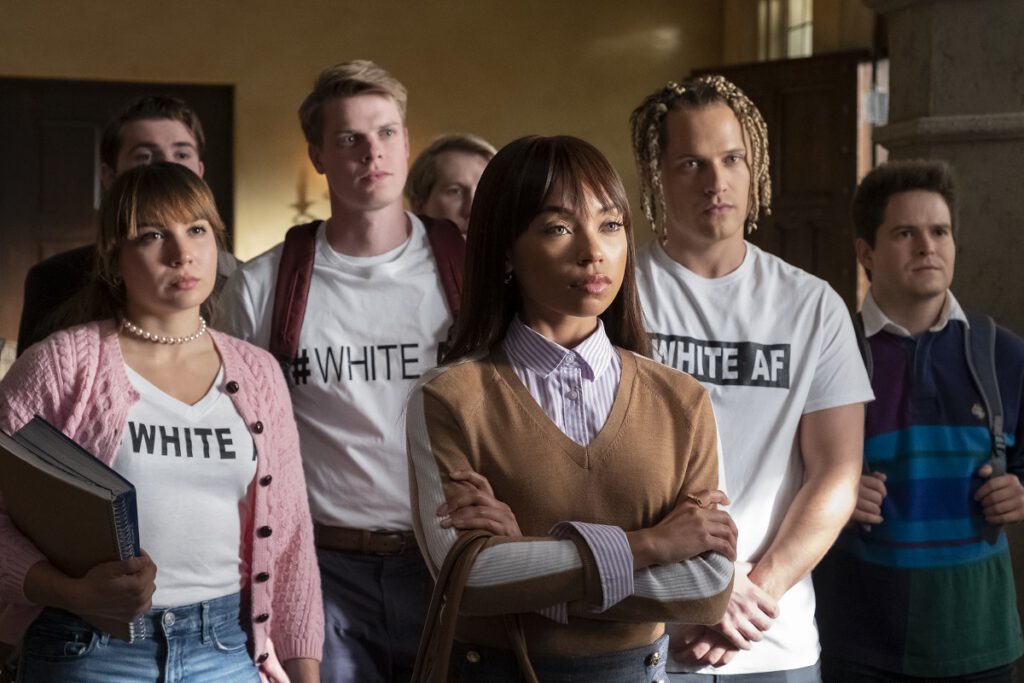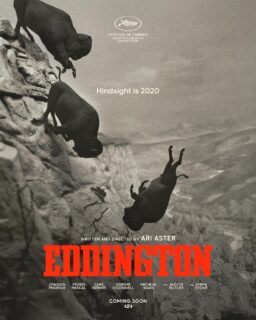The fourth and final season of Netflix’s “Dear White People” feels a bit like an afterparty. It’s not as sharp, profound, or consistent a season as the first three, but it’s loaded with empathetic goodwill, a season that seems designed as a celebratory goodbye for the people who love these characters, and a reminder that creator Justin Simien clearly loves them too. While the ambitious construct of the fourth season has moments of sharp ingenuity, it’s also a season that reflects both the pandemic conditions under which it was shot and the plight of college graduates in 2021 with its uncertainty. This series has been sharply unpacking race, sexuality, and class for three seasons—that the final season sometimes feels like it has no idea how to bring all of its many themes to a satisfying conclusion almost makes sense given the crazy state of the world. How else could you capture a graduating class in 2021? At least it’s got a catchy song or two to make the graduation party more fun.
Yes, believe it or not, the fourth season of “Dear White People” is a jukebox musical, using songs from the ‘90s in elaborate song and dance numbers. After a set-up set in “The Future” that will give the season its construct, wherein Sam (Logan Browning) and Lionel (DeRon Horton) reunite to discuss his work on a fourth book in the Dear White People series (very meta), the bulk of the season unfolds as a flashback to the students of Winchester University, as the characters prepare for a musical show that sees them routinely break into song. For example, as Sam walks the campus already trying to figure out what’s going to happen next, she leads a rendition of Tevin Campbell’s “Round and Round,” about the difficulty of dreaming, complete with back-up dancers. Simien and his writers use pop music to express their characters and their themes in a new way (although they seem to lose interest in the concept a bit mid-season as the show spends more and more time in “The Future”).

In some ways, this is a good thing. A lot of the music choices are a bit too on-the-nose (like Gabe singing “I’m Gonna Be (500 Miles)” to express his love for Sam) and can feel like they work against the nuance of the show. (Although I did admire the brazen choice of trying to turn *NSYNC’s “Bye Bye Bye” into a legitimate, emotional break-up duet.) Simien and the writers end up shifting a lot of energy to a reality show called “Big House,” on which Coco (Antoinette Robertson) competes. A “Big Brother” spoof (complete with the racial issues that have dogged that show), the broad material here plays like a different kind of satire than “Dear White People” is at its best.
The more character-driven stuff that develops is more interesting, although some of it is repetitive. Lionel continues to deal with his sexual expression, including coming out around his family, while Sam continues to try to pull his creativity and talent from him, no matter the personal cost. The trauma from the end of the first season also continues to shape the arc of Reggie (Marque Richardson) as he tries to reclaim some of his fear of violence by taking up shooting.
While every episode is enjoyable on its own terms, the problem with the fourth season of “Dear White People” is almost one of abundance. The momentum often derails in ways that didn’t happen in the past by dividing among so many styles—a let’s-put-on-a-show structure, a character drama, a jukebox musical, and a reality TV spoof is a lot for one season of comedy television. However, it’s not common to criticize a modern TV comedy for trying to do too much. And it’s indicative of Simien’s love for his creations. He wants them to have a bit of everything in the final season, to send them off into TV history with all the joy, passion, and creativity he can muster. If the show about them sometimes feels like the party went on a little too long, it’s still a damn good time.
Seven episodes screened for review. Premieres on Netflix today, September 22nd.












